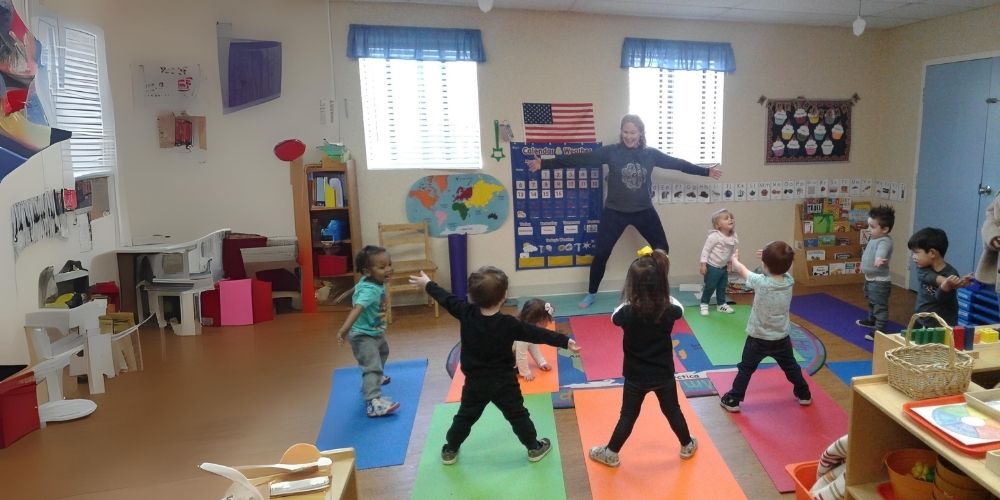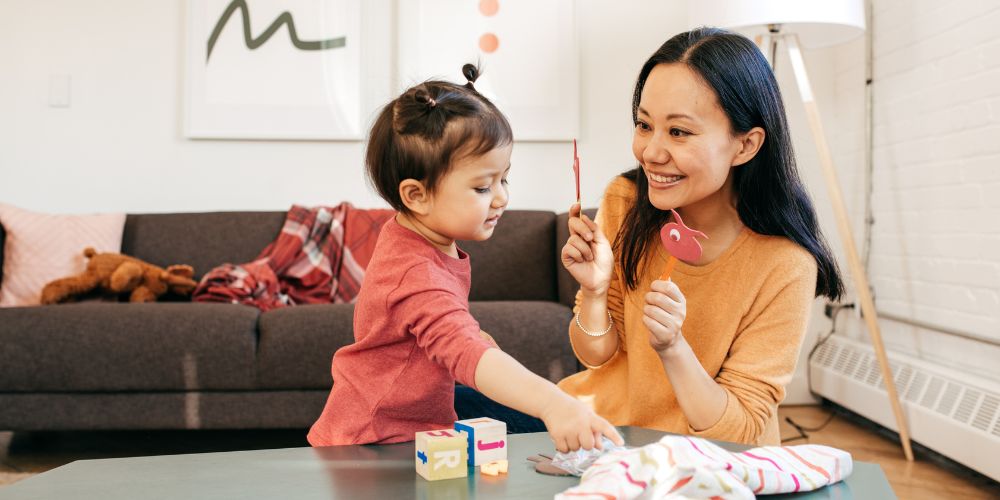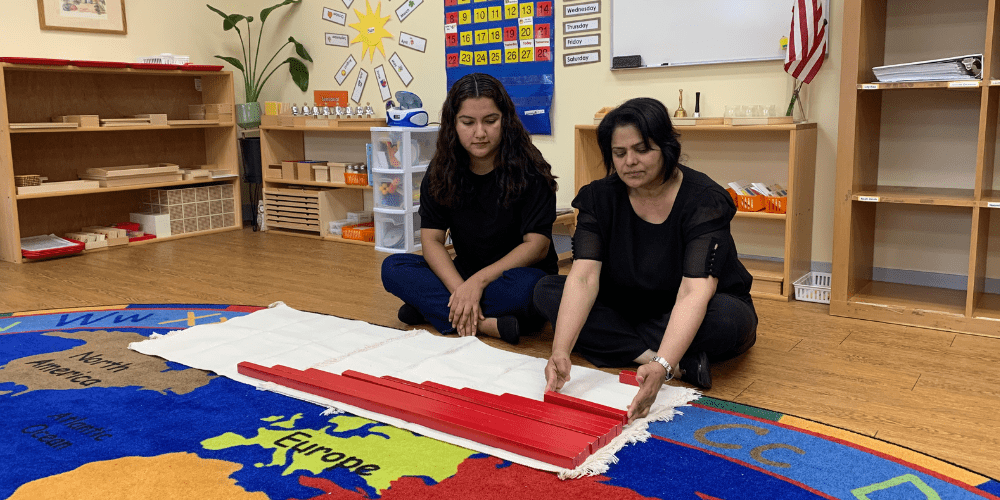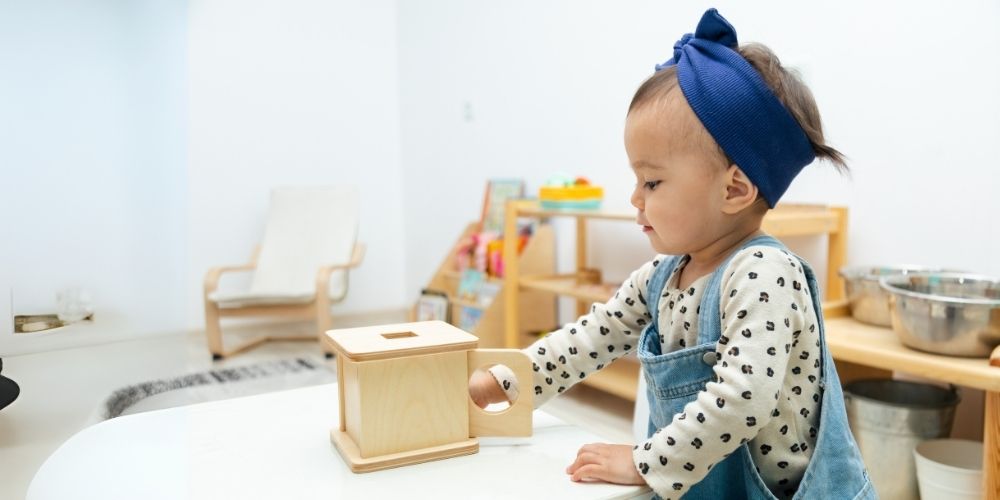Summer is the time of year when schedules become more relaxed. Children’s bedtimes get pushed back, school is not in session, and summer vacations are in full swing. Relaxation is an important part of maintaining health and wellbeing for children especially after over a year of living through a global pandemic.
While we recognize the importance of the summer break, we encourage parents to keep a Montessori learning mindset for their children by continuing to provide daily structure, helping develop practical life skills, and following and encouraging children as they explore new concepts and ideas. Using summer as an opportunity for children to nurture their natural curiosity and to practice and refine the skills they learned throughout the school year will set them up for success when the school year resumes in the Fall.
Montessori Summer Programs
One way to continue your child’s growth and development over the summer is by enrolling them in an educational summer program. Research shows that summer learning loss (the loss of skills and knowledge over long summer breaks) can impact students of all ages, even preschool or daycare-aged children. Educational summer programs play an important role in continuing the growth and development of a student’s social, emotional, cognitive, physical, and academic skills.
Montessori-based summer programs can be an ideal option for the summer as they engage children in fun and educational activities, enrichment programs, and field trips based on the Montessori principles of active learning, independence, cooperation, and following the child’s natural development.
Enrolling your preschooler, kindergartener, or elementary student in a Montessori summer program will allow them to explore new ideas and concepts that they may not explore during the traditional academic year. Your child can learn essential academic skills without feeling like they are in the classroom and have a place to experiment, create, and explore subjects that they are passionate about.
Summer programs are also a wonderful way for your child to continue to nurture friendships or introduce your child to a whole new group of friends. Summer camps provide great opportunities for children to build social and emotional bonds with other children who may share similar interests or hobbies.
An educational summer camp can help your child further their academic success, get them over an educational hurdle, boost their passion for a certain subject, or enhance their thirst for knowledge. If you are looking for a Summer Program for your child, explore the CMMS Summer Program.
Maintaining Montessori Mindset at Home
Whether you choose to enroll your child in a structured Summer Program, or remain home with your child this summer, you can still help your child maintain a learning mindset by following some simple Montessori practices at home.
Create A Prepared Environment
With a little planning, you can easily set up a Montessori Prepared Environment for your child at home. Encouraging order, independence, and self-motivation is fundamental to the Montessori approach. At school, carefully designed classrooms allow children to develop competence in caring for themselves and their surroundings. You can prepare your home in similar ways:
- Designate a place for your child’s books and toys
- Organize each item into an individual storage container rather than one large bin
- Use clear or colored bins to denote the types of toys
- Optional: take a picture of the toy and attach it to the bin
- Ensure that items are accessible to your child
- Provide 2 rollable work mats (36”x24”) to define “work” area
- Rotate books and toys every few weeks
- Give access to a houseplant that your child is responsible for watering and caring for
Having an established work-area will allow your child to make their own decisions about what they do with their free time and encourage them to practice independence.
Provide a Daily Structure
To maintain the Montessori Mindset at home during the summer, we recommend providing your child with a daily structure/routine so that they know what to expect and can become independent in that routine. You can print out routine cards to guide your child with their morning and evening routines. By using these cards with your child, they can take an active part in the process and can refer to the cards to see what they need to do next.
Practice Practical Life Skills
Practical Life skills are the building blocks that teach your child to take care of themselves and the space around them. Younger children can water plants, feed pets, wipe the table after meals, and pick up their toys. Older children can take out trash, prepare meals, and perform basic home maintenance. They can also teach their younger siblings to support them with these tasks. Check out our Practical Life Tasks Handout to learn what tasks your child can do at home by age group.
One key to encouraging your child’s independence and growth during the summer is to make sure they are included in daily chores. At school, students are taught to be contributing members of their classroom and this expectation should continue into your home. Not only does upholding daily expectations allow your child to practice their practical life skills, but it also teaches responsibility and confirms the importance of their contribution to the household.
‘Follow the Child’
With more time together at home during the summer, the Montessori principle of ‘Following the Child’ can be especially pertinent. What does it mean to ‘Follow the Child’? At its essence, it means to act as a resource, an observer and a source of encouragement. Respect your child’s journey of growth and development by letting them make mistakes and discoveries, and experience successes and challenges.
As your child chooses activities around the house, pay attention to which ones he or she chooses over and over again and which ones are left to collect dust. Use it as an opportunity to foster their love of learning. For example, if your child is drawn to dinosaurs, it would be a great opportunity for you and your child to collect books about dinosaurs or to visit local museums together to learn more about them.
Allow for Movement & Exploration
Movement and exploration is essential for normal development in early childhood as developing muscle control and coordination helps build brain nerve networks. Research suggests that promoting movement and activity in young children can help increase memory, perception, language, attention, emotion, and even decision making.
It is important to keep your child physically active every day during the summer. Throwing, catching, hitting and kicking, balance activities, and movement and fitness are some activities you can incorporate into your summer days to help with your child’s gross motor development. Environments should be designed to allow the child to move freely, explore, touch, and manipulate. Providing space both indoors and outdoors that encourage movement and exploration is essential.
Here are some Montessori inspired ideas to help allow for movement and exploration beyond conventional outdoor activities:
- A tray with bubble-making supplies and unusual bubble blowers such as funnels, rope tied into a circle, or a slotted spoon put a new twist on an old favorite activity.
- Window or outdoor furniture washing: This is always a popular activity in Montessori classrooms and all you need is a small spray bottle (full of water or water mixed with white vinegar), a small squeegee, and a sponge.
- Scrubbing: Many young children love scrubbing because they can see immediate results! Scrubbing often comes with water spills and mess, but that’s okay—learning how to clean the spills is part of the purpose. You can make this activity simple with a tub, scrub brush, and towel, or add extra elements like soap and a bottle brush to clean crevices. Children love scrubbing tables, chairs, rain boots or their waterproof toys.
- A watering can and weeding gloves helps your child take responsibility for the care of plants.
- A butterfly net and bug viewer might be kept together for children to investigate how animals behave in your backyard.
Whether you select to send your child to a structured summer program, or choose to have your child stay home, with a little preparation, patience, and a “Montessori mindset”, you can provide your child with fulfilling activities during the summer. This will nurture their natural development, reinforce the skills that they gained during the school year, and set them up for success when the school year resumes.
If you are looking for more Montessori Parenting Tips, check out our Parent Resources page!





